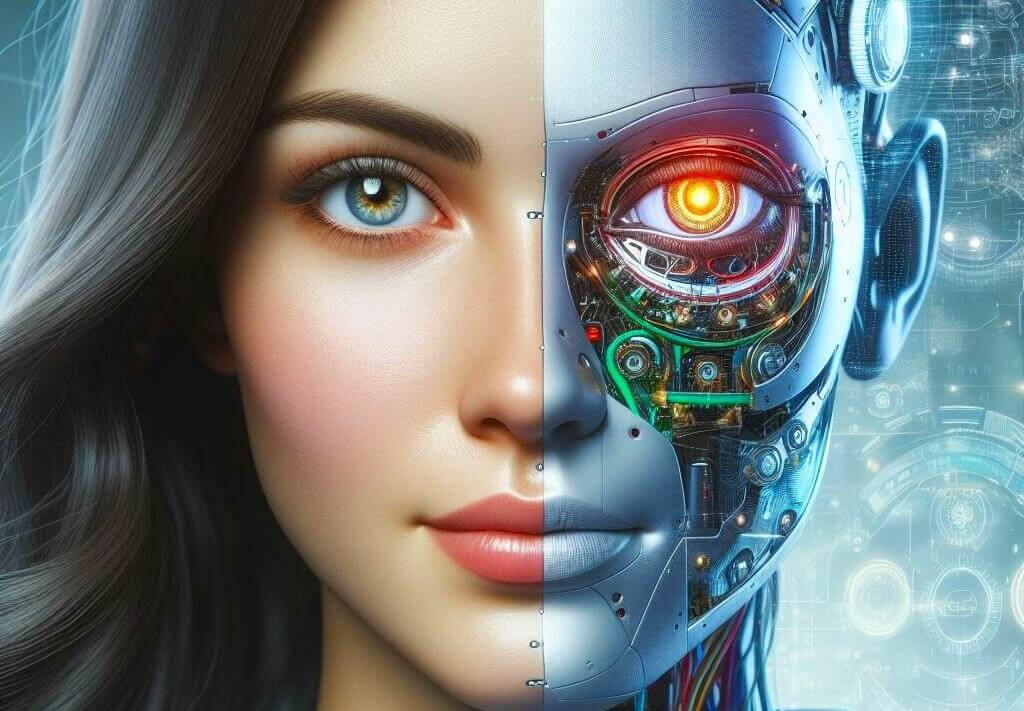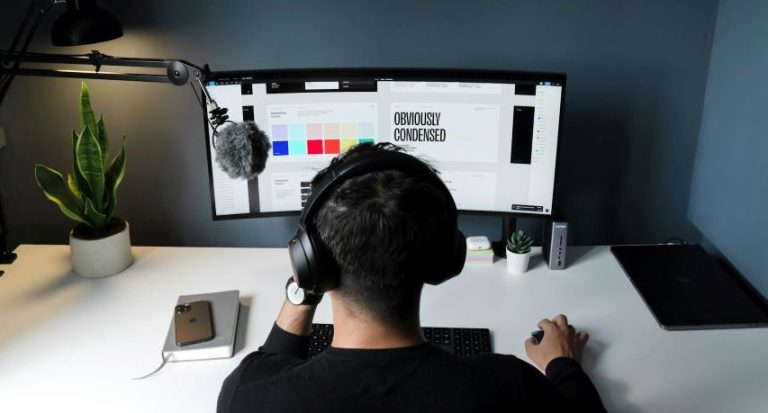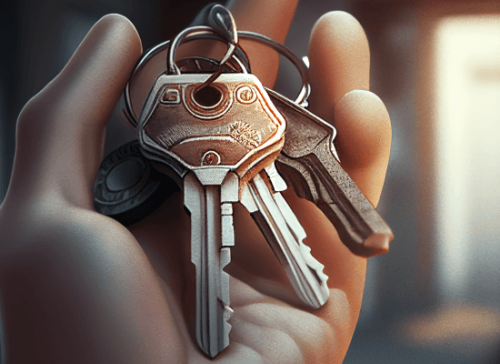Will AI Replace Humans?
Artificial intelligence (AI) is one of the most powerful and disruptive technologies of our time. This is FACT! But will AI be capable to replace humans in different functions? And if so, at what extent?
AI has the potential to transform various aspects of our lives, from health care and education to entertainment and business.
However, as for any big change in the world´s history, there are also many myths and fears surrounding AI. This is particularly true when it comes to its impact on specific fields that are the “realm” of human intelligence…
Many people are worried that AI will replace humans, take over our jobs, or even “harm us” in some ways…
Others think that AI is far superior to human intelligence. Or that it can replicate all the aspects of human cognition and creativity…
The truth is that, at least in our present times, AI is not yet at the point to completely replace human intelligence. AI still needs human “guidance” (prompts) and “inputs” (data) to respond properly and effectively. But this is not the point : AI can be a powerful assistant to accelerate the development of many human technologies. And this because of native data analysis capabilities that are superior in speed and reliability to those of humans.
In this blog post, we will explore some of the common misconceptions about the different relationships AI and human intelligence, and how they can be debunked by looking at the facts and evidence. We will also discuss how AI can actually enhance human intelligence, by providing us with new tools, insights, and opportunities to learn and grow.
The Plan for Today…
Here is what we are going to talk about:
- What is AI and how does it work? A brief introduction to the concept and applications of AI, and how it differs from human intelligence.
- Is AI smarter than humans? A comparison of the strengths and limitations of AI and human intelligence, and why they are complementary rather than competitive.
- Can AI replace humans? A realistic assessment of the impact of AI on various domains and professions, and how humans can adapt and collaborate with AI.
- How can AI help us learn and improve? A showcase of some of the ways that AI can enhance human learning and performance, and how we can leverage AI to achieve our goals.
- What Can We Do? Some suggestions to squeeze the maximum gains from this coming revolution.
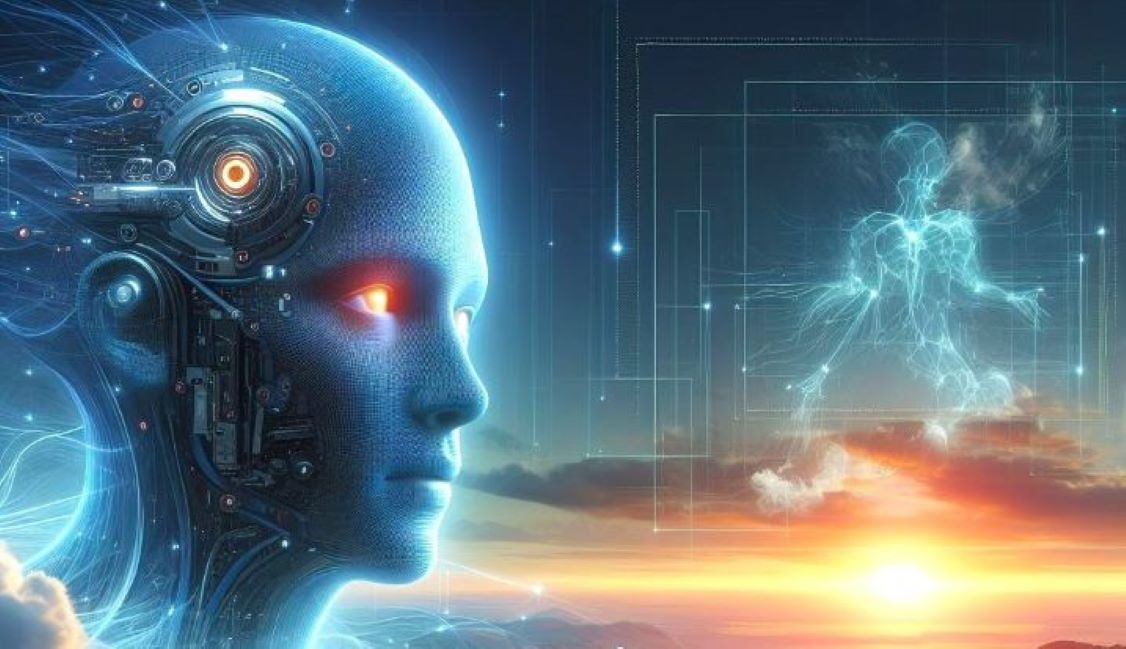
My goal for this article, is to provide you with a better understanding of the relationship between AI and human intelligence. How they can work together to create positive outcomes for individuals and society.
We will also discuss some practical and actionable tips on how to use AI to boost your own intelligence capabilities and skills.
What is AI and how does it work?
From a very broad perspective, “AI” is a term that refers to the ability of machines or systems to perform tasks that normally require human intelligence, such as reasoning, decision making, problem solving, learning, and perception.
As we already discussed more completely in a previous article, AI can be classified into two types: narrow AI vs general AI.
| Narrow AI is the type of AI that we encounter in our daily lives, such as voice assistants, search engines, facial recognition, and self-driving cars. Narrow AI is designed to perform specific tasks or functions, and it is usually based on algorithms or rules that are programmed by humans. |
| General AI, on the other hand, is the type of AI that can perform any task that a human can do, and it is not limited by predefined rules or domains (well…”General AI” is still a hypothetical concept, and it is not clear whether it is possible or desirable to create it…). |
AI works by using various methods and techniques to process data and information, and to generate outputs or actions. (ever heard about Machine Learning or Artificial neural networks? Great. They are an example of those paths).
Now, let´s go to the meat´n´grit of the matter here :
Main Differences Between Human and Artificial Intelligence
AI differs from human intelligence in several ways, such as:
- Speed: AI can process data and information much faster than humans, and it can perform complex calculations and operations in a fraction of a second.
- Accuracy: AI can reduce or eliminate human errors, biases, and inconsistencies, and it can provide more precise and reliable results and outcomes.
- Scalability: AI can handle large and diverse data sets, and it can perform multiple tasks or functions simultaneously or sequentially.
- Memory: AI can store and retrieve data and information more efficiently and effectively than humans, and it can access and recall any information at any time.
- Emotions: AI does not have emotions or feelings, and it does not get affected by factors such as mood, stress, fatigue, or motivation.
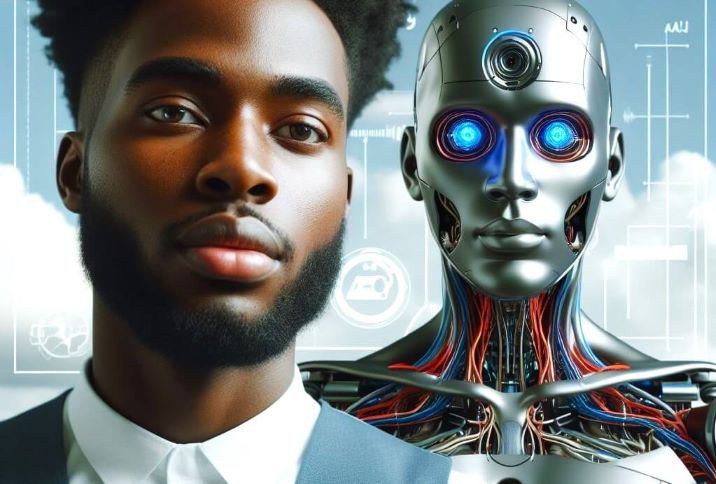
Wanna learn AI Prompting? Follow the link and start today!
So…Is AI smarter than humans?
One of the common myths about AI is that it is smarter than humans, or that it can surpass human intelligence in all aspects. This myth is based on a misunderstanding of what intelligence is, and how it can be measured and compared.
Intelligence is not a single or fixed attribute, but a multifaceted and dynamic construct that can vary depending on the context, domain, and criteria. If you think about it, there is acually no universal or objective definition or measure of intelligence (ouch!!).
So, different forms of intelligence can have different purposes and values.
| AI and human intelligence have different strengths and limitations, and for that matter they are complementary rather than competitive. |
AI excels at tasks that require speed, accuracy, scalability, and memory, such as data analysis, computation, and optimization.
Human intelligence excels at tasks that require creativity, intuition, empathy, and judgment, such as problem solving, innovation, and communication.
So, in other words, AI and human intelligence can in all reality work together to achieve better results and outcomes,
Their different characteristics can be exploited to the full. They can compensate for each other’s weaknesses.
Integration of AI and Human Mental Skills
Just as a starter, AI can help humans to:
- Discover new insights and opportunities: AI can analyze large and complex data sets, and identify patterns, trends, and correlations that humans may not be able to detect or comprehend. AI can also generate new hypotheses, questions, and solutions that humans may not be able to conceive or imagine. AI can help humans to expand their knowledge and understanding, and to explore new possibilities and scenarios.
- Enhance decision making and problem solving: AI can provide humans with more information, options, and recommendations, and help them to evaluate the pros and cons of each alternative. AI can also help humans to avoid or reduce errors, biases, and uncertainties, and to improve the quality and efficiency of their decisions and actions. AI can help humans to make more informed and rational choices, and to solve problems more effectively and efficiently.
- Improve productivity and performance: AI can automate or augment various tasks and functions that are repetitive, tedious, or complex, and free up humans to focus on more creative, strategic, or meaningful activities. AI can also provide humans with feedback, guidance, and support, and help them to learn and improve their skills and abilities. AI can help humans to achieve more with less time, effort, and resources.
(And by the way, how can you speed your your learning in AI Engineering? Here are our tested Top 5 Tips for AI Engineering!) 💪💪💪💪💪
But Can AI replace humans?
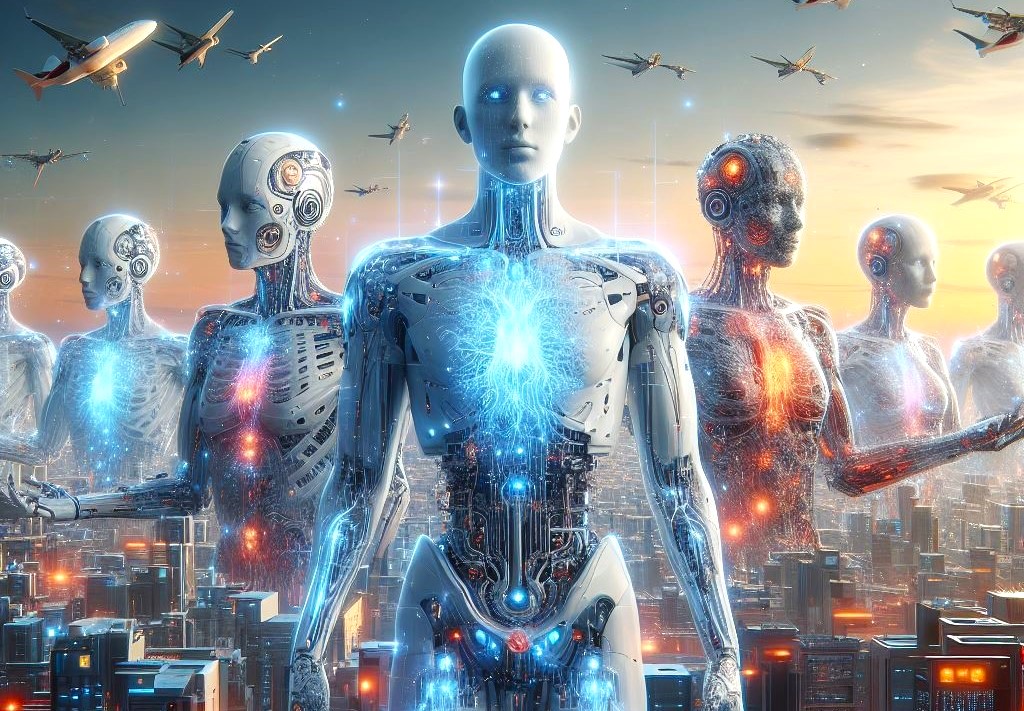
Another common myth about AI is that it can replace humans, or that it can take over our jobs or roles. This myth is based on a fear or anxiety of losing our value or relevance in the face of technological advancement and change. However, this myth is not supported by the facts and evidence, and it overlooks the potential and opportunities that AI can offer to humans.
Anyway, a specific answer to this question is more speculative and controversial, as it involves many assumptions, uncertainties, and ethical dilemmas. Some people believe that AI will eventually surpass human intelligence and capabilities, and become a superintelligence that can control or dominate human society. This is known as the singularity, which is predicted to happen by the end of this century, according to some experts…
The Truth As of Today
But, at least in our present times (as far as 2024) AI CANNOT replace humans because:
| AI is not self-aware or autonomous: AI is not a conscious or independent entity, but a tool or system that is created and controlled by humans. AI does not have its own goals or intentions, but it follows the instructions or objectives that are given by humans. AI does not have its own values or ethics, but it reflects the values and ethics that are embedded by humans. AI does not have its own agency or responsibility, but it depends on the oversight and regulation of humans. |
| AI is not general or adaptable: AI is not able to perform any task that a human can do, but it is limited by the scope and domain that it is designed for. AI is not able to learn or improve on its own, but it requires human input and feedback. AI is not able to cope with uncertainty or ambiguity, but it relies on clear and consistent rules and data. AI is not able to handle novel or complex situations, like a human even instintcly can do. |
| AI is not creative or empathetic: AI is not able to generate original or novel ideas, but it recombines or modifies existing ideas. AI is not able yet to understand or appreciate the meaning or value of its outputs or actions, but it follows the criteria or metrics that HAVE TO BE defined by humans. AI is not able to communicate or interact with humans in a natural or emotional way, but it uses predefined or scripted language and behavior. |
How Can AI Assist Human Intelligence?
AI is not only a tool for humans to use; it is also a source of inspiration and learning for human intelligence. AI can help human intelligence learn and improve in several ways, such as:
| Providing feedback and guidance: AI can act as a tutor, coach, or mentor for humans, by providing personalized and adaptive feedback and guidance based on the individual’s goals, abilities, and preferences. This Forbes article describes several advanced applications where AI implementation is massively accelerating development. Or here, regarding youth education, is an article by theconversation.com. about how AI can help students through assessments and chatbots for instance. |
| Enhancing creativity and innovation: AI can augment human creativity and innovation by generating novel and diverse ideas, solutions, and designs, and by facilitating collaboration and communication among humans. This article from Unesco.com describes how AI can help creatives and artists create original and expressive works by the innovative combination of new ideas with insights from previous ones. And thanks to the great ability to analyze large masses of data. artificial intelligence is already helping scientists and entrepreneurs find new possibilities and opportunities by detecting patterns and making accurate predictions.. |
| Expanding knowledge and understanding: AI can enrich human knowledge and understanding by providing access to vast amounts of information, by synthesizing and summarizing complex and diverse sources, and by explaining and visualizing concepts and phenomena. For example, think about how AI can filter, rank and verify the results of web queries way faster than any human being. Or how the capabilities for organizing data and creating infographics provided from AI can help a student maximize the results from any study session. |
Cooperation Instead of Competition
AI and human intelligence are not at all in competition, but in cooperation. By leveraging the strengths and complementing the weaknesses of each other, AI and human intelligence can create a synergistic relationship that can benefit both individuals and society. AI can help human intelligence learn and improve, And human intelligence can help AI learn and improve, creating a virtuous cycle of mutual enhancement.
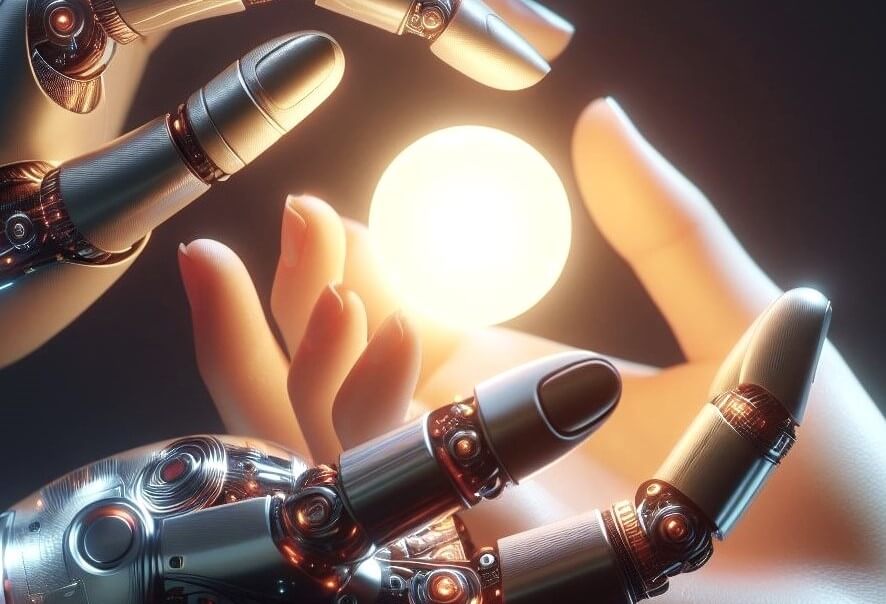
And how can AI be the basis of your future accomplishments? : Read the article and find out!
Wanna manage your Time like a Boss? Read on and learn how! –
How can we prepare for the future of AI?
As you can tell, the future of AI is uncertain and unpredictable, but also exciting and promising.
AI can bring many benefits and opportunities for human society, but it can also pose many risks and challenges. Therefore, we need to be proactive and responsible in shaping the future of AI, and not let it shape us.
We need to be aware and informed of the current and potential impacts of AI, both positive and negative.
We need to be ethical and moral in developing and using AI. We have to ensure that any use of AI respects and protects human values, rights, and interests. We need to be collaborative and cooperative in regulating AI. But we also have also to ensure that the use of AI is transparent, accountable, and fair.
We need to be adaptive in learning and working with AI, but also ensure that AI is accessible, affordable, and beneficial for any of us.
We also need to be creative and innovative in designing and creating applications where AI can boost our results,
But also pay full attention to use this resource to boost our own intelligence, our capabilities to understand Nature and the Universe as a whole…
We must be humane and human in living and thriving with the additional help of AI, ensuring that it does not replace, but complements humans.
(Hey, what about a high demand jobs in which integrate your AI prompting skills? Don´t miss this one too!)
Conclusion
AI is a powerful and fascinating technology that can transform every aspect of our lives. AI can also replace human beings in some tasks or domains, but not in all.
Can AI replace human beings in general or as a whole?
IS THIS MAYBE NOT THE RIGHT QUESTION?? AI can merge with the capabilities of human beings, and create new forms of intelligence and capabilities.
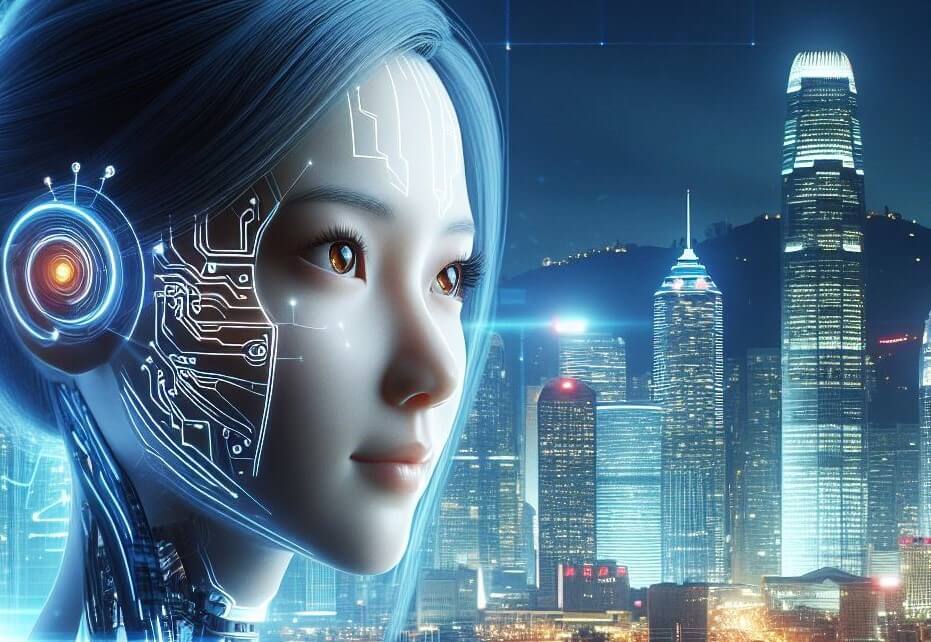
AI is not a replacement, but a complement, to human beings. AI is not a threat, but a tool, a partner, and a “friend”, to human beings.
AI is not an end, but a means, for the further development of human beings.
| AI is not the answer, but the question, to human beings. |
So again, in the end, can AI replace human beings?
No, but it can help us become better human beings…
Thank you very much for reading! 🙂
